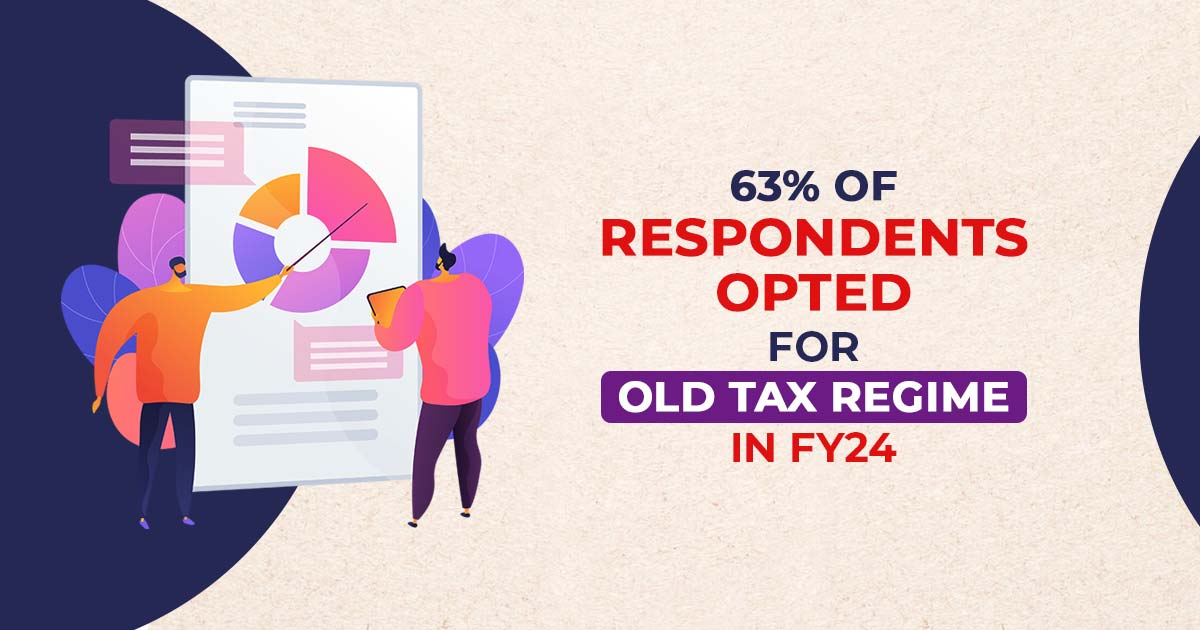In the fiscal year 2023-24, 63% of India’s employed individuals chose to file their tax returns under the traditional tax structure, favoring long-term investments over the immediate cash benefits provided by the new system. This data comes from a survey conducted by Policybazaar.com, indicating a strong preference for the old tax regime among taxpayers.
The old tax regime allows for various tax slabs with rates determined by income, along with deductions under sections such as 80C and 80D, effectively reducing taxable income. In contrast, the new tax regime, which became the default option in the financial year 2023-24, offers a simpler structure with fewer tax slabs and lower rates, but does away with most deductions, providing only a standard deduction of Rs. 50,000 starting from FY24.
Approximately 55 million taxpayers may have transitioned to the new tax regime in the current fiscal year, attracted by a rebate on income up to Rs 7 lakh. However, 63% of respondents still favored the old tax regime, citing reasons such as lower tax liability, tax-free maturity of investments, and retirement savings.
The survey also revealed that salaried individuals, higher earners, and individuals aged 31-41 years showed the strongest preference for the old tax regime. Furthermore, regions such as Southern India and states like Tamil Nadu, Karnataka, and Delhi NCR exhibited a higher inclination towards the old tax regime.
In terms of tax-saving instruments, the Public Provident Fund (PPF) and life insurance, including both ULIP and traditional policies, emerged as the most favored choices among respondents.
These findings highlight Indian consumers’ focus on savings and a thoughtful approach to financial planning, emphasizing the importance of retirement-oriented tools such as provident funds, pensions, and insurance.
Historically, India’s tax regime has undergone numerous changes, with significant reforms introduced over the years to simplify the tax system and make it more efficient for taxpayers. The preference for the old tax regime in the current fiscal year reflects the impact of these reforms and the choice of long-term financial planning over immediate benefits.
In summary, the survey results indicate a strong preference for the old tax regime among Indian taxpayers, driven by a focus on long-term investments and retirement planning. This highlights the careful consideration given to the potential long-term benefits of tax-saving instruments and emphasizes the importance of financial planning for the future.


Leave a Reply